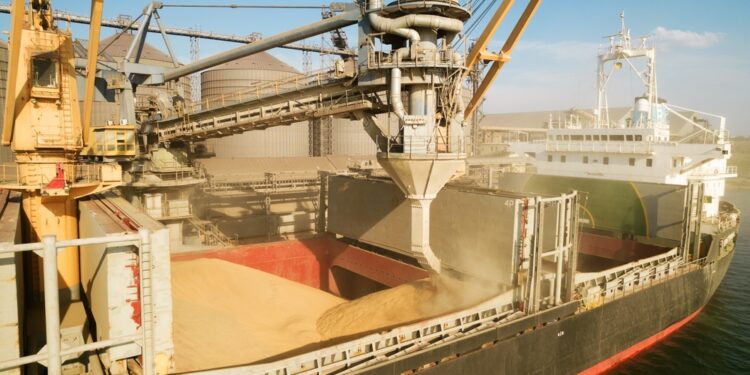Russia on Monday made an announcement regarding the suspension of an unprecedented wartime deal that allowed the flow of grain from Ukraine to countries in Africa, the Middle East, and Asia. This deal was crucial in addressing the growing threat of hunger in those regions, where high food prices have been pushing more people into poverty.
Kremlin spokesman Dmitry Peskov communicated this decision during a conference call with reporters, stating that Russia would only resume the deal once its demands were met. The agreement was a result of negotiations brokered by the United Nations and Turkey last summer, aimed at permitting food exports from the Black Sea region after Russia’s invasion of Ukraine a year and a half ago. Additionally, a separate agreement facilitated the movement of Russian food and fertilizer despite Western sanctions.
Both Russia and Ukraine are major global suppliers of essential food products like wheat, barley, and sunflower oil that developing nations heavily rely on. Russia argued that its food and fertilizer exports were hindered by shipping and insurance restrictions, which also play a crucial role in the global food chain.
Despite some concerns and pushback, the deal was renewed for 60 days in May. However, in recent months, there has been a significant decline in the amount of food shipped and the number of vessels departing from Ukraine, with accusations against Russia for limiting participation. The ongoing war in Ukraine led to surging food commodity prices, contributing to a global food crisis worsened by factors such as the COVID-19 pandemic, droughts, and other climate-related issues.
While global food commodity prices, including wheat and vegetable oil, have slightly fallen, they remain high, posing challenges for countries like Egypt, Lebanon, and Nigeria, where the cost of essential grain for food staples has exacerbated economic difficulties and pushed millions more people into poverty and food insecurity. Developing nations, struggling with climate issues, also face the burden of importing food priced in dollars, leading to increased spending due to weakening currencies.
The loss of the Black Sea deal is particularly critical for the food security of several countries, especially those grappling with high debt levels and climate fallout. While some analysts expect only temporary fluctuations in food commodity prices due to increased wheat and corn exports from countries like Russia and Brazil, the issue of food insecurity continues to grow.
The UN Food and Agriculture Organization has identified 45 countries in need of external food assistance, with high local food prices being a driving force behind alarming hunger levels in those regions.
The Black Sea Grain Initiative, which allowed three Ukrainian ports to export significant amounts of grain and food products to the world, especially developing nations, has faced challenges since its inception. Russia withdrew from the deal temporarily in November before rejoining and extending it. However, the extension was only granted for 60 days in March and May, instead of the usual 120 days. The volume of grain shipped per month also saw a decline over time.
Amid the ongoing tensions, Ukraine has accused Russia of preventing new ships from joining the initiative since the end of June. Joint inspections to ensure the ships carry only grain and no weaponry that could aid either side have slowed considerably.
















